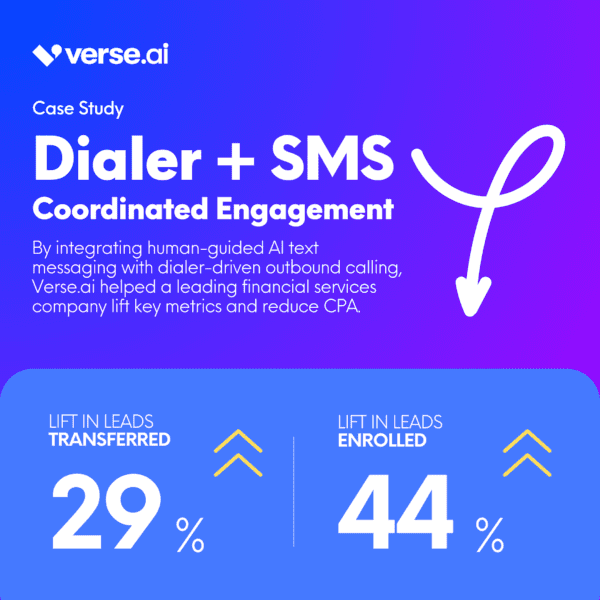BDRs have been necessary for over 20 years. As of late, hyperbolic claims are circulating around the death of the BDR role.
The purpose of BDRs’ work is to book qualified opportunities with account executives in a cost-efficient manner—but is this still the most effective, cost-efficient way?
With technological innovation, including artificial intelligence (AI), and changes to buyer behavior, the answer is no. But the BDR role is not dying, rather, it’s experiencing an evolution.
It’s true that having the least-experienced, least-supported members of the sales team—BDRs—take on responsibility for booking qualified opportunities is, at this point in time, a questionable strategy.
Leveraging AI and BDRs, companies can unlock a more effective approach that does not necessarily sacrifice the future of the BDR role.
What does a BDR do?
A business development representative (BDR) helps to build the sales pipeline, concentrating on lead generation, qualification, and setting meetings for the Sales team.
As they are in sales, BDRs need to meet quotas, usually measured by the number of qualified leads generated or appointments scheduled.
BDRs are generally responsible for prospecting and generating leads—usually through cold calls, emails, and networking. Through their outreach, they will also qualify prospects to ensure they are a good fit.
In their lead engagement, a BDR’s goals are:
- Provide prospects with information about the company
- Qualify the lead
- Schedule a meeting with the Account Executive
BDRs were deemed necessary in order to get Account Executives (AEs) meetings with qualified prospects. Typically, BDRs do this at a lower cost than if the AEs were to do it themselves, allowing high-cost AEs to focus on closing deals.
BDR vs. SDR
The BDR role is similar to a sales development representative (SDR), though SDRs usually focus on inbound leads that have been identified and generated by the BDR.
Typically, SDRs and BDRs are both entry-level sales positions. They share a main mission to set up sales meetings for AEs.
If a company employs both sales development representatives and business development representatives:
- SDRs usually work on inbound leads and lead qualification.
- BDRs usually work on outbound lead generation, such as cold calling and emailing.
BDRs can also complete the tasks that can be assigned to SDRs. For the sake of simplicity, we’ll refer to both inbound and outbound (SDR and BDR) tasks under the BDR umbrella in this blog.
Why the BDR Role is Changing
Today, some people assert that the business development representative role is “dying”. While this is not necessarily the case, the BDR role is certainly experiencing changes.
As mentioned earlier, the BDR role was created to generate qualified opportunities at a lower cost. However, in today’s market, the need for BDRs is reduced.
This is not to say that the role is dead, or that BDRs don’t do a good job.
Depending on a company’s industry, product, and size, companies may not need as many BDRs, or the role within the company will change.
The problem is, the traditional approach to sales (which includes reliance on BDRs) has become outdated for the following reasons.
Changes in the Lead Generation Landscape

Every year, consumers become more resistant to traditional sales and marketing methods. The landscape has become increasingly bloated with sales and marketing messages.
In the past, a phone call or a knock on the door used to be meaningful—now, it’s a nuisance.
Sick of being directly sold to, consumers are experiencing notification fatigue.
As digital transformation is well underway, customers prefer a self-guided, digital buying experience.
According to Gartner, 75% of B2B buyers prefer rep-free experiences rather than working directly with a sales rep. 80% of B2B sales interactions are predicted to take place via digital channels by 2025.
Cold calls and cold emails are seeing a decline in answer and open rates, with conversion rates from cold calls averaging at about 2%.
Engaging with warm leads will always be more successful than cold calling, but now more than ever, consumers prefer to engage when they are ready. They can do their own research online: checking out your website, reading reviews, and comparing with competitors.
At this point, high-volume approaches are a waste of everyone’s time—especially a BDR’s.
Cost
Ten to 20 years ago, BDRs helped to keep customer acquisition cost (CAC) lower. But with the current lackluster conversion rates for cold calls and emails, BDRs aren’t getting the same number of quality meetings as they used to.

Cold calling spends time and money on a 2% conversion rate—is that really worth it?
When 77% of CFOs are deploying new cost-cutting measures this year, it becomes clear that there is opportunity to cut costs and improve productivity in the BDR process.
Growing and maintaining a high headcount among BDRs is expensive, and arguably no longer worth it for many companies. Especially when emerging technology such as AI is able to augment the capabilities of a single BDR.
Emerging technologies
While AI does not replace BDRs, it can help by automating aspects of their work. In fact, over 60% of BDRs believe that AI tools make their role more productive, and less than 9% believe that AI is a threat to the future of their role.
Depending on the company, AI can help to make top performers more effective, and scale sales operations to grow the sales pipeline.
This is in line with current trends, as Salesforce reports that AI adoption in sales operations has increased 76% in recent years; and high performers are 2.8x more likely to use AI than underperformers.
With AI technology (such as Verse.ai), companies can now automate:
- Lead outreach
- Lead qualification
- Appointment setting
At Verse, we engage every lead automatically—and pass warm, qualified leads to your team.
According to Accenture, AI can increase lead generation and qualification by more than 50%; this is because AI can instantly respond, 24/7, and can qualify leads faster than a human.
While AI tools are an investment, high-quality platforms (such as Verse.ai) automate engagement and qualification based on your business needs, including human-in-the-loop for a layer of quality control. This replicates human quality at scale.
Employee Experience
Being a BDR is not an easy job—it is the dirty work of the sales process. Setting qualified meetings is one of the hardest jobs in sales; and for BDRs, it’s often a thankless job.
BDRs often spend their entire day cold calling and emailing without any response. When people do pick up the phone or answer an email, it’s almost always a no. Rejection after rejection can become tiring, feel unfulfilling, and lead to employee burnout.

In fact, 63% of sellers point to cold calling as the worst part of their job.
With AI, manual and mundane aspects of the BDR role can be automated, such as appointment setting and email outreach.
Focusing on AI-qualified warm leads, rather than cold outreach, can help to improve the employee experience and your conversion rates.
Customer Experience
As we discussed earlier, consumers are sick of being constantly sold to, preferring a rep-free experience.
With cold calling, BDRs spend their time reaching out to people who may not even be interested in your product. Often, this might even turn people off to your brand.
In today’s competitive landscape, it’s vital to differentiate your company with an excellent customer experience:
- Create a great website and user experience
- Respond quickly to inquiries
- Give customers helpful information
- Meet customers where they are at
Customer respect is a big part of creating a trusted brand image. When you show customers that you will communicate on their terms, on their schedule, and only call when they are ready, that improves trustworthiness and customer experience.
In addition, when prospects need to talk to BDRs to schedule a call with a salesperson, it adds unnecessary time to the buying process.
Using an AI assistant like Verse, leads can instantly ask any questions, become qualified, and schedule directly with the salesperson—often in a fraction of the time it might take with a BDR.
At Verse, we also incorporate the convenience of SMS, allowing leads to simply text to set appointments or set up a phone call.

Immune to generic outreach, consumers highly-prefer direct text as a communication channel. For consumers, texting is also less invasive than calling a prospect who is not ready to be called.
How AI Helps BDRs Succeed
To say that the BDR role is dying is an overstatement—just like any role, the BDR role is evolving with technological innovation and changing consumer behavior.
However, sales teams and BDRs should be capitalizing on the benefits that AI has to offer, or they could lose out to their competitors.
AI empowers sales teams that understand how to use it, promoting efficiency through:
- Quick, 24/7 lead engagement
- Automatic lead qualification
- Appointment setting
Solutions like Verse take care of the mundane, dirty work of sales, allowing your sales team to focus on only warm, qualified leads. This helps salespeople, such as BDRs, to do more with warm opportunities.

At Verse, we built our solution around the common problems that we see in today’s companies.
Our solution can help you boost conversion rates, improve customer experience, save money, and close more deals.
Verse’s fully-managed, AI platform:
- Enables two-way SMS with your prospects for high read and response rates
- Responds immediately, 24/7
- Qualifies leads according to your business needs
- Passes warm, qualified leads to your sales team
- Does not call leads until they are ready
- Sets appointments, including changes and cancellations
- Keeps a human in the loop for efficient and authentic communication
- Scales for growth without adding headcount
We can help you streamline your sales operation and evolve your BDR function. Let’s talk about what Verse can do for your company.


